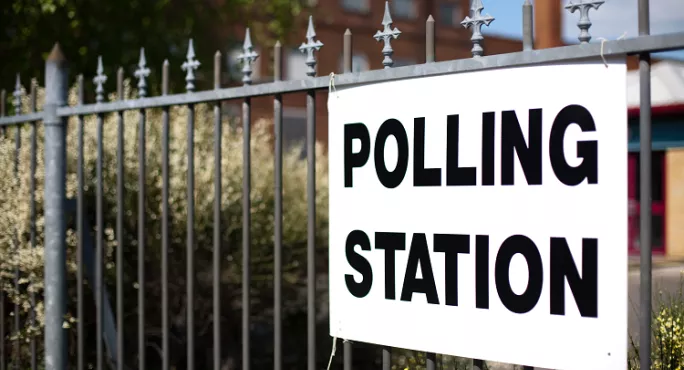- Home
- Exclusive: AoC joins the fight for votes at 16
Exclusive: AoC joins the fight for votes at 16

A new campaign is being launched today by the Association of Colleges and the NUS students’ union in a bid to force the government to lower the voting age from 18 to 16.
Colleges across England are taking part in the Fair.Vote campaign, in which FE students and staff will lobby their local MPs to support a bill going through Parliament that proposes a reduction in the voting age.
Some 544,850 people aged 16-17 attend colleges across England and this is the first time the AoC has tried to mobilise college students on a national scale.
Although 16-year-olds in England can get married, work, pay taxes and serve in the armed forces, they are not yet allowed to vote in any elections. In Scotland, 16- and 17-year-olds are allowed to vote in Scottish elections, and the Welsh government recently announced plans to allow young people aged 16-17 to vote in council elections. However, the minimum age for voting in a UK general election remains 18.
FE sector enters the debate
The campaign is supporting a private member’s bill brough by Labour MP Peter Kyle that has cross-party support. It proposes lowering the voting age to 16, automatically adding 16- to 24-year-olds to the voting register and using educational establishments as polling stations.
It is co-signed by Conservative MP and former education secretary Nicky Morgan, along with Liberal Democrat MP and former minister Norman Lamb, among others. Other high-profile supporters of the voting age being reduced include former education secretary Justine Greening and the former chancellor, George Osborne.
The new AoC-led campaign has been welcomed by Mr Kyle, who said: “The significance about the FE sector weighing in so comprehensively into this debate is that it gives structure and organisation to the voice and passion that is out there among young people themselves”.
‘Education is empowering’
The AoC wants colleges and their students to lobby MPs to support the bill, which will be debated in Parliament in May. Later this month, an “education for democracy day” will be held, when colleges will invite local MPs to take part in debates on the voting age.
David Hughes, chief executive of the AoC, said: “When we started talking about the campaign to members, there were lots of raised eyebrows and questions about whether we should be doing something like this and whether it was too political.”
But colleges were quick to appreciate the wider issues involved, according to Mr Hughes. “Education is empowering. It helps people become citizens and understand how our participative democracy operates, and therefore helping young people to really engage in politics is really, really important,” he said.
Mr Hughes added: “How do you make young people feel like they’ve got a stake in our society, like their voice matters? What you do is, you say: ‘We think you should have a vote.’”
‘Democratic right’
Karen Spencer, principal and chief executive at Harlow College, is among the college leaders backing the new campaign. She commented: “Young people have a lot of responsibilities at the age of 16. As an educator, I feel it’s an important part of our democracy that they also have rights, like the right to vote at 16.”
Many FE students feel “rightly aggrieved that they are expected to pay tax, are able to obtain welfare benefits, and yet are denied the most basic right in a democracy,” according to Robbie Young, NUS vice-president for society and citizenship.
But the government remains opposed to changing the voting age. Last month, David Lidington, minister for the Cabinet Office, told MPs that the government was committed to keeping the voting age at 18 and had “no plans to lower the voting age in elections”.
However, colleges could “make all the difference” in mobilising 16- and 17 year-olds and “empowering them to challenge a closed and undemocratic political system”, according to Mr Lamb.
“The further education sector gives young people the skills, wisdom and maturity that the country relies on. If it can also speak with a united voice to demand that these people should be given a say over their own futures, that is something no government can ignore,” he said.
This is an edited version of an article in the 9 February edition of Tes. Subscribers can read the full story here. To subscribe, click here. To download the digital edition, Android users can click here and iOS users can click here. Tes magazine is available at all good newsagents
Want to keep up with the latest education news and opinion? Follow Tes FE News on Twitter, like us on Facebook and follow us on LinkedIn
Keep reading for just £1 per month
You've reached your limit of free articles this month. Subscribe for £1 per month for three months and get:
- Unlimited access to all Tes magazine content
- Exclusive subscriber-only stories
- Award-winning email newsletters



